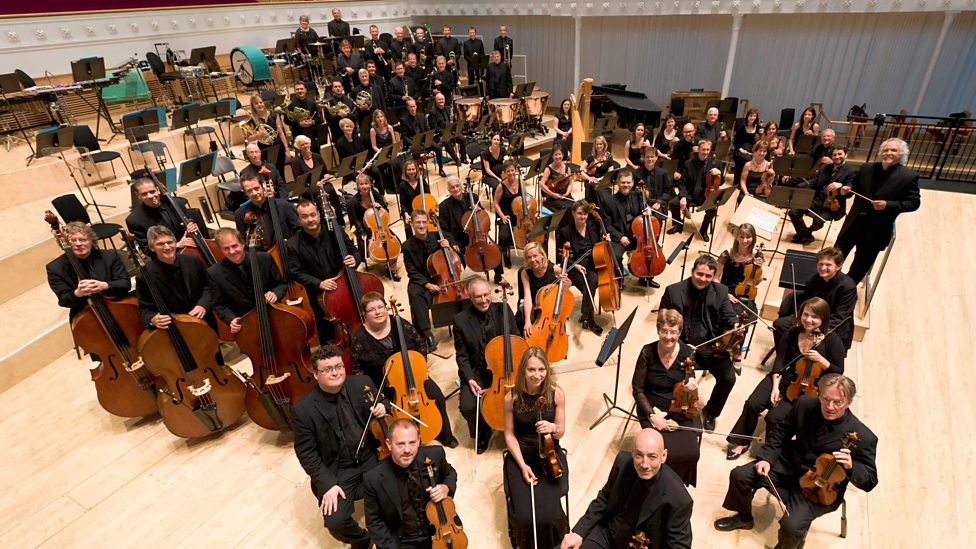A concert planned around the theme of variation has unintended further variety as a result of the withdrawal through illness of its conductor, Martyn Brabbins. The planned Scottish premiere of Birthday Variations, written by various fine contemporary composers to mark the conductor’s 60th birthday, and played for the first time this year at the BBC Proms, is consequently postponed and is hoped to be rescheduled. We have instead two conductors, the experienced John Wilson who leads the orchestra for the remaining three pieces, and Sergej Bolkhovets, Conducting Fellow at the Royal Conservatoire, who leads a small subset of the orchestra in Dvorak’s beautiful Serenade for Wind Instruments.
The concert begins with Brahms’ Variations on a Theme by Haydn (St Anthony Chorale). Nowadays, most experts agree that the St Anthony Chorale was not written by Haydn, but probably by his pupil Ignaz Pleyel. Be that as it may, the refrain which Brahms used as the base for this work has its roots in traditional church music experienced by generations at religious festivals. Brahms works a spirited and increasingly complex musical structure around this simple but distinctive theme, returning to it in a buoyant, triumphant finale.
It is followed by a more emotionally challenging piece in Benjamin Britten’s Serenade for Tenor, Horn and Strings. Here the main theme is night, dreams and decay, with horn solos, played pleasingly on natural horn by the orchestra’s principal horn, Alberto Menéndez Escribano, leading us into and at the end hauntingly out of the night. Meantime the tenor Stuart Jackson and the strings sections of the BBC SSO, together with the horn, interpret the works of six poets, which explore the theme of the night and the subconscious. We progress from a relatively gentle Pastoral by seventeenth century poet Charles Cotton, through Tennyson’s ominous Nocturne, from the moral corruption described in Blake’s Sick Rose, and the threatening darkness of the fifteenth century anonymous Lyke Wake Dirge, to the earthiness of Ben Johnson’s Hymn to Diana and finally the comparative serenity of Keats’ sonnet ‘O soft embalmer of the still midnight…’ calling for sleep as an escape. Stuart Jackson’s fine expressive tenor voice, sensitive horn playing and the strings, all well led by John Wilson, work together to provide an authoritative interpretation.
After the interval the concert belongs to Dvořák. First, the Serenade for Wind Instruments, conducted by Sergej Bolkhovets, and played by an ensemble of twelve musicians, ten wind instruments, double bass and cello. This is a work of Dvořák’s successful, optimistic youth, which attracted Brahms’ attention and admiration. A year after its premier Brahms declared it would ‘be difficult to discover a finer, more refreshing impression of really abundant and charming creative talent.’ Reflecting themes of Czech folk music and dance, the work encompasses march and dance rhythms, moving from a lyrical central movement to a lively technically challenging finale.
The second Dvořák work is the acclaimed Symphonic Variations, written at approximately the same time as the Serenade for Wind Instruments and premiered in Prague in December 1877. Written for a full orchestra, it was a response to a challenge from conductor Ludevit Prochazka, and based on the melody of Dvorak’s early song for male choir, The Fiddler. The theme is followed by 28 variations which move through a broad spectrum of moods and undergo numerous instrumental transformations. The work ends strikingly with a fugue which transforms suddenly to a Czech polka at its climax. Although well received in Prague, Symphonic Variations was sidelined for ten years when Dvorak conducted it himself in Prague and encouraged by an enthusiastic audience response sent it to conductor Hans Richter. The conductor became a great supporter of the work, declaring that he had never known a new work ‘to spark such undeniable enthusiasm, from all quarters.’ Richter went on to premier the work in Vienna in December 1887, where it was received with thunderous applause. As indeed it is in Glasgow.
We are denied one intriguing comparison. The three most performed sets of orchestral variations are the Brahms work which opens this concert, the Dvořák work which concludes it, and the Elgar Variations, on which the postponed Birthday Variations are based. However, this is a well managed adaptation to that unfortunate change, and a considerable credit to the professionalism and resilience of the BBC Scottish Symphony Orchestra and its musical community.
